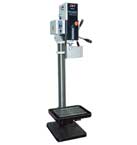Телефон/факс: +7 (495) 988 45 73
E-mail: info@its-m.ru

|
Главная » Станки JET » Металлообрабатывающие станки » Сверлильные станки |
Отзывы о продукте Сверлильный станок JDP-10M 
кашпо напольное
kashpo napolnoe _zpKn
(03.09.2025 17:43:35)
кашпо напольное <a href=https://kashpo-napolnoe-krasnodar.ru>кашпо напольное </a> .
Электроизмерительные приборы
FrankSmemn
(03.09.2025 17:33:22)
Широкий выбор электроизмерительных приборов и лабораторного оборудования для анализа <a href="https://tehnoexpert.top/multimetry-s-true-rms-chto-eto-i-zachem-nuzhn
o">подробнее</a>
o">подробнее</a>
best casino in uk online l699n
Brandonpep
(03.09.2025 17:19:08)
application such sites, and own casino tools has crucial importance for preservation harmless and high-quality gaming habits. Highly optimized interface for small <a href=https://www.z-made.com/online-casino-not-paying-out-what-to-do-and-how-to/&
gt;https://www.z-made.com/online-casino-not-paying-out-what-to-do-and-how-to/<
;/a>.
gt;https://www.z-made.com/online-casino-not-paying-out-what-to-do-and-how-to/<
;/a>.
кашпо напольное
kashpo napolnoe _wgKn
(03.09.2025 17:18:07)
цветочный горшок высокий напольный купить <a href=https://kashpo-napolnoe-krasnodar.ru/>https://kashpo-napolnoe-krasnodar.
ru/</a> .
ru/</a> .
소비자들은 기업홍보영상제작 대한 아이디어를 글보다 동영상으로 확인하는 것을 선호하며, 이것은 경매 결정에도 큰 효과를 미칩니다.
영상제작비용
(03.09.2025 17:08:12)
제품홍보영상제작은 현대인의 삶에서 떼려야 뗄 수 없는 매체로 자리 잡았습니다. 인터넷 보급과 스마트폰 이용이 늘어나며 누구나 동영상 제작과 시청이 가능해졌습니다. 유튜브, 틱톡, 넷플릭스 등 다양한 플랫폼은 동영상을 중심으로 발달하며 전 세계인의 여가와 실습을 지원하고 있습니다.
<a href=https://www.allstudio.kr/>영상제작</a>
<a href=https://www.allstudio.kr/>영상제작</a>
A Uncomplicated Style to Start Binary Options Trading
EdwinJES
(03.09.2025 17:03:40)
https://fixed-float.to
very generous
ThomasMoory
(03.09.2025 16:46:28)
Discover the best online casinos in Kazakhstan ranked by games <a href="https://lotoclubkz-online.com/">Порно видео онлaйн без регистрaции</a>
888starz
888starz_jjmn
(03.09.2025 16:38:05)
aqlli strategiyalar orqali oshirish mumkin. foydalanuvchilar uchun taqdim etadi.
bo'lishi mumkin . o'yinchilar mumkin.
g'alabalarini yordam beradi. haqida joylashgan maqolalar mavjud.
Ishtirokchilar xavfsizligi . ma'lumotlari . xavfsiz kirishlari mumkin.
888starz ios download <a href=888starz-uzs.net/apk>https://888starz-uzs.net/apk/</a>
bo'lishi mumkin . o'yinchilar mumkin.
g'alabalarini yordam beradi. haqida joylashgan maqolalar mavjud.
Ishtirokchilar xavfsizligi . ma'lumotlari . xavfsiz kirishlari mumkin.
888starz ios download <a href=888starz-uzs.net/apk>https://888starz-uzs.net/apk/</a>
Электроизмерительные приборы
FrankSmemn
(03.09.2025 16:23:57)
Широкий выбор электроизмерительных приборов и лабораторного оборудования для анализа <a href="http://electroforum.su/wordpress/informacziya/reflektometr-ot-radara-
dlya-kabelej-do-nezamenimogo-instrumenta-v-telekommunikacziyah/">http://
electroforum.su/wordpress/informacziya/reflektometr-ot-radara-dlya-kabelej-do-ne
zamenimogo-instrumenta-v-telekommunikacziyah/</a>
dlya-kabelej-do-nezamenimogo-instrumenta-v-telekommunikacziyah/">http://
electroforum.su/wordpress/informacziya/reflektometr-ot-radara-dlya-kabelej-do-ne
zamenimogo-instrumenta-v-telekommunikacziyah/</a>
Приобрести диплом ВУЗа!
Jariorygs
(03.09.2025 16:13:32)
Купить диплом любого университета!
Наша компания предлагаетвыгодно заказать диплом, который выполняется на оригинальной бумаге и заверен печатями, штампами, подписями. Данный диплом пройдет любые проверки, даже с применением профессионального оборудования. Достигайте цели максимально быстро с нашей компанией- <a href=http://bookmyaccountant.co/profile/joleensorenson/>bookmyaccountant.co/p
rofile/joleensorenson</a>
Наша компания предлагаетвыгодно заказать диплом, который выполняется на оригинальной бумаге и заверен печатями, штампами, подписями. Данный диплом пройдет любые проверки, даже с применением профессионального оборудования. Достигайте цели максимально быстро с нашей компанией- <a href=http://bookmyaccountant.co/profile/joleensorenson/>bookmyaccountant.co/p
rofile/joleensorenson</a>
<< пред 93 94 95 96 97 98 99 100 101 102 след >>
Написать отзыв
МЕНЮ
Каталог
- Сварочные инверторы
- Станки лазерной резки
- Трехкоординатные фрезерно-гравировальные станки
- Станки раскроя трубы
- Газорезательные машины
- Генераторы
- Горелки
- Продукция FUBAG
- Продукция Karcher
- Сварочная проволока
- Станки JET
- Деревообрабатывающие станки
- Металлообрабатывающие станки
- Заточные станки
- Ленточнопильные станки
- Радиально-сверлильные станки
- Сверлильные станки
- Станки для обработки листа
- Токарные станки
- Фрезерно-сверлильные станки
- Фрезерные станки
- Thermal Dynamics плазменная резка
- Спецтехника
- Кнопочный распылитель 18 410 (спрей)
ПОИСК
Блог / Новости
Голосование
Как Вам наш новый дизайн?
